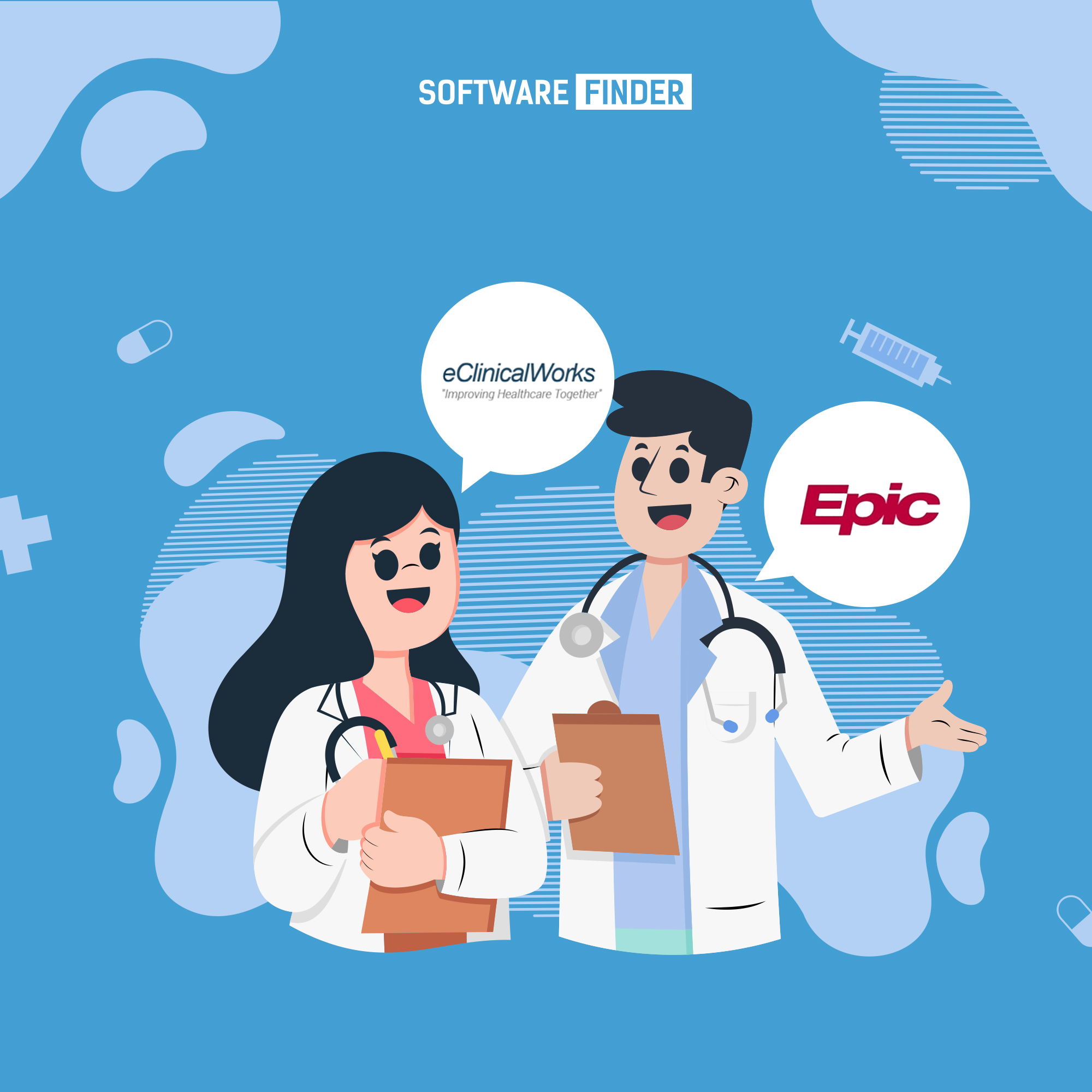EpicCare Vs eClinicalWorks EMR: Choosing the Best One

eClinicalWorks (ECW) is a cloud-based electronic medical record (EMR) software designed for healthcare providers. The software provides various features that allow healthcare providers to streamline their practice workflows, improve patient care, and manage their operations effectively.
Top Features Offered by eClinicalWorks Software
Some of the features of eClinicalWorks EMR software include:
- Electronic Health Record (EHR) management: The software provides comprehensive EHR management, including appointment scheduling, patient registration, and clinical documentation.
- Clinical decision support: eClinicalWorks provides clinical decision support tools that help providers make informed treatment decisions.
- Patient engagement: The software allows providers to engage with their patients through patient portals, appointment reminders, and patient education resources.
- Revenue cycle management: eClinicalWorks includes revenue cycle management features such as insurance verification, billing, and collections.
- Population health management: The software allows providers to track and manage the health of patient populations, identify high-risk patients, and monitor quality measures.
Overall, eClinicalWorks EHR software is designed to help healthcare providers improve patient care, increase practice efficiency, and achieve better health outcomes for their patients.
Epic EMR (Electronic Medical Record) is a widely used electronic health record (EHR) software system designed for healthcare organizations, including hospitals, clinics, and medical practices. The software is known for its scalability, robust features, and user-friendliness.
Top Features Offered by EpicCare EMR
Some of the key features of Epic EMR software includes:
- Electronic health record management: Epic provides comprehensive EHR management features, including charting, medication management, lab results, and order entry.
- Clinical decision support: The software offers clinical decision support tools that help providers make informed treatment decisions.
- Patient engagement: Epic includes patient engagement tools such as patient portals, appointment scheduling, and patient education resources.
- Revenue cycle management: Epic features revenue cycle management capabilities, including insurance verification, billing, and collections.
- Population health management: The software enables providers to track and manage the health of patient populations, identify high-risk patients, and monitor quality measures.
In addition to these features, Epic EhR offers robust reporting and analytics tools that enable healthcare providers to track performance, identify trends, and make informed decisions.
Overall, Epic EMR is a comprehensive and versatile software system designed to improve patient care, streamline workflows, and help healthcare organizations achieve better health outcomes.
Which One is Better?
Both EpicCare and eClinicalWorks are popular electronic medical record (EMR) software solutions, but determining which one is better for your specific needs will depend on a variety of factors. Here are some key differences between the two systems:
- Size and Scope: Epic is a larger and more complex system, designed for larger healthcare organizations, whereas eClinicalWorks is often more suitable for smaller practices.
- Features: Epic offers a broad range of features, including patient portal, e-prescribing, scheduling, and clinical documentation. eClinicalWorks has similar features but is not as comprehensive as Epic.
- Cost: Epic is typically more expensive than eClinicalWorks, due to its larger scope and more advanced features.
- Ease of Use: Both systems have user-friendly interfaces, but eClinicalWorks is known for being easier to learn and use.
- Integration: Epic has more integrations with other healthcare systems and services, making it a more flexible choice for larger healthcare organizations.
Ultimately, the best EMR system for you will depend on your specific needs and preferences. It’s important to carefully evaluate both options and consult with experts or peers to determine which system is the best fit for your organization.